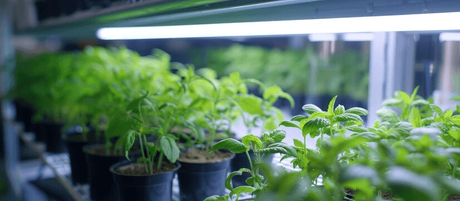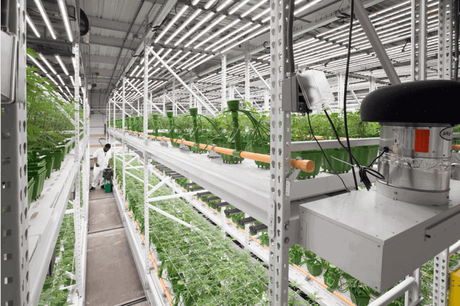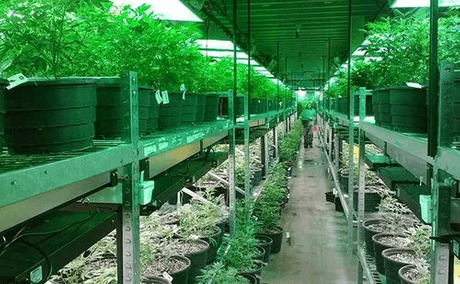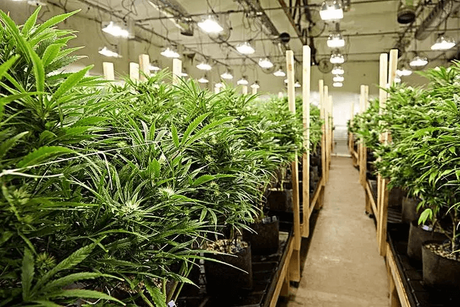Hydroponic and soil-based commercial vertical grow rack systems are both popular methods for vertical farming, but they differ in several key aspects:
Growing Medium: In hydroponic systems, plants are grown without soil. Instead, they are supported by inert mediums like rockwool, coco coir, perlite, or clay pellets, which provide mechanical support and hold the roots in place while allowing for the passage of nutrients and water. Soil-based systems, on the other hand, use traditional soil as the growing medium, which provides both mechanical support and nutrient retention capabilities.
Nutrient Delivery: Hydroponic systems rely on a nutrient-rich water solution that is delivered directly to the roots. The nutrient solution is typically recirculated through the system, allowing for precise control over nutrient levels and delivery. In soil-based systems, nutrients are present in the soil, and plants absorb them through their root systems. The nutrient availability and balance in soil-based systems may require periodic testing and amendments.
Water Usage: Hydroponic systems are known for their efficient water usage compared to soil-based systems. In hydroponics, water is recirculated, and excess water is minimized, leading to reduced water consumption. Soil-based systems, on the other hand, may require more water due to the natural drainage and water-holding capacity of the soil.
Space Utilization: Both hydroponic and soil-based vertical grow rack systems allow for efficient space utilization, making them suitable for vertical farming. However, hydroponic systems often have a smaller footprint compared to soil-based systems, as they don't require space for soil beds. Hydroponic systems can be designed with stacked trays or channels to maximize vertical growing space.
Plant Health and Disease Control: Hydroponic systems offer better control over the nutrient balance and pH levels, resulting in optimal plant health and growth. Soil-based systems rely on the natural properties of the soil, which can vary in nutrient composition and pH. However, soil-based systems can benefit from the presence of beneficial microorganisms and a diverse soil ecosystem, which can enhance plant health and disease resistance.
Flexibility and Mobility: Hydroponic systems are generally more modular and portable compared to soil-based systems. They can be easily adjusted, expanded, or moved as needed. Soil-based systems, especially those with larger soil beds or containers, may require more effort to modify or relocate.
Maintenance and Labor: Hydroponic systems often require more monitoring and maintenance compared to soil-based systems. Regular monitoring of nutrient levels, pH, and water quality is essential in hydroponics. Soil-based systems, while still requiring maintenance, may be more forgiving and require less frequent monitoring of nutrient levels.
Crop Selection: Both hydroponic and soil-based vertical grow rack systems can support a wide range of crops, including leafy greens, herbs, and certain fruiting crops. However, certain crops may have specific preferences for growing in soil or hydroponic systems. For example, root vegetables like carrots and potatoes are more suited to soil-based systems, while lettuce and herbs thrive in hydroponic systems.
Ultimately, the choice between hydroponic and soil-based commercial vertical grow rack systems depends on factors such as crop selection, available resources, desired control over nutrients and water, and the specific goals and preferences of the grower.
 English
English








